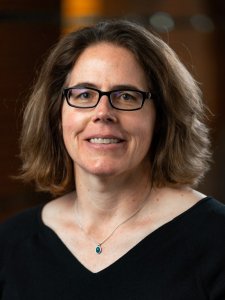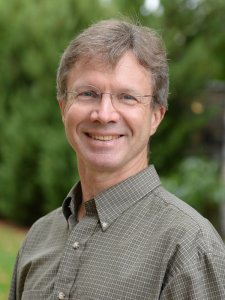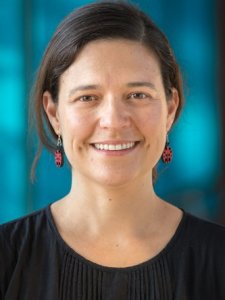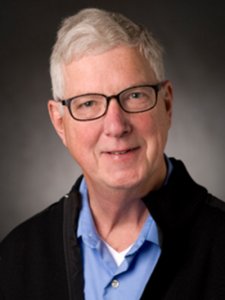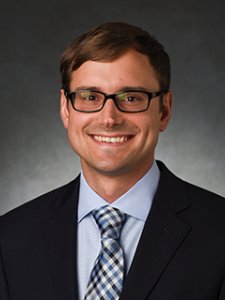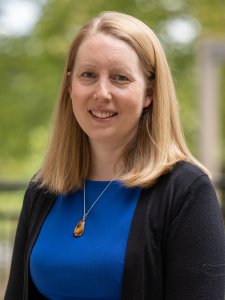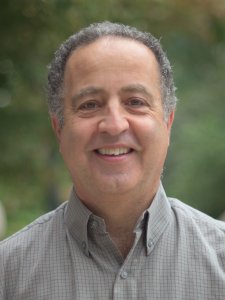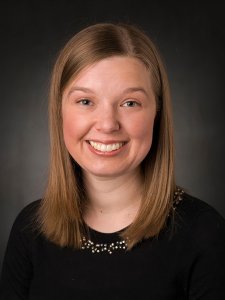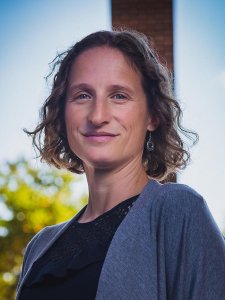Four researchers named Institute of Energy and the Environment Fellows
Four Penn State researchers have been selected as 2025 fellows of the Institute of Energy and the Environment (IEE). The IEE Fellowship Program recognizes researchers whose work has significantly advanced energy and environmental research and provides support to further their efforts.
Mentions
-
Bruce Logan
-
Wangda Zuo
-
Jennifer Baka
Associate Professor and John T. Ryan, Jr. Faculty Fellow, College of Earth & Mineral Sciences -
Christine J. Kirchhoff
-
Kenneth Davis
-
Margarita López-Uribe
Lorenzo L. Langstroth Early Career Professor and Associate Professor, Entomology
Decoding dangers of Arctic sea ice with seismic, radar method
| psu.edu
Drifting sea ice threatens Arctic communities. A new tool developed by researchers at Penn State identifies seismic activities linked to distinct types of shifting ice.
Mentions
-
Tieyuan Zhu
-
Ming Xiao
-
Eileen Martin
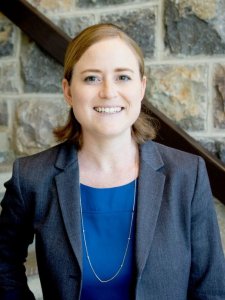 Eileen MartinAssistant Professor, Computational Modeling and Data Analytics, Virginia Tech
Eileen MartinAssistant Professor, Computational Modeling and Data Analytics, Virginia Tech
How smart buildings use AI to cut energy use and improve health
AI-powered smart buildings improve comfort, cut energy use, and lower emissions—helping create healthier spaces and a cleaner, more resilient future.
Penn State to lead statewide climate resilience network
| onwardstate.com
Prepare PA will help communities adapt to the growing impacts of climate change. Penn State will lead Prepare PA, a new statewide climate network aimed at helping Pennsylvanians adapt to climate change through education, collaboration, and community resilience initiatives.
Mentions
Tidal marshes trap microplastics in the Chesapeake Bay ecosystem
| bayjournal.com
Tidal marshes — where crabs and fish feed their way toward adulthood — are the lifeblood of estuarine systems like the Chesapeake Bay. They’re also where a lot of our microplastics end up. This article features Penn State research.
Mentions
Seed Grant Projects
Penn State Sustainability, Pa. GreenGov Council offer 7th annual webinar series
| psu.edu
Penn State Sustainability and the Pennsylvania GreenGov Council will once again present a monthly webinar series to educate government officials, students and faculty about sustainability issues and progress across Pennsylvania. This year’s series kicks off at noon on Friday, Oct. 17, with a discussion on the benefits of microgrids.
Mentions
-
Krista Bailey
-
Jack Rumery
 Jack Rumery
Jack Rumery -
Heather Preisendanz
-
Sherri Mason
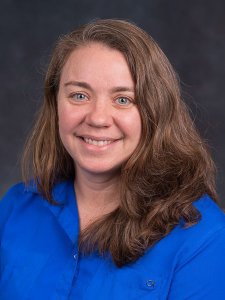 Sherri MasonFormer Sustainability Coordinator, Penn State Erie, The Behrend College
Sherri MasonFormer Sustainability Coordinator, Penn State Erie, The Behrend College -
Peter Boger
What if we could prevent disasters before they strike?
| psu.edu
Unseen damage beneath Pittsburgh's streets threatens lives and budgets. Penn State is pioneering technology for real-time prevention.
Mentions
-
Tieyuan Zhu
-
David Himes
 David Himes
David Himes
Architecture lab’s work using mycelium featured in new installation in Old Main
| psu.edu
An acoustic wall that was designed and built using mycelium — the root of fungi — by a team of interdisciplinary researchers led by Benay Gürsoy, associate professor of architecture and director of the Form and Matter Lab in the College of Arts and Architecture’s Stuckeman School, now adorns a wall in Penn State Provost Fotis Sotiropoulos’ office in Old Main.
Mentions
Wild lupine genetics could be key to conservation of species
| psu.edu
Penn State researchers studying declining populations of sundial lupines in the eastern part of the United States are closer to determining how an understanding of the plant genetics could be used to inform reseeding strategies to help with conservation efforts.
Mentions
-
Margarita López-Uribe
Lorenzo L. Langstroth Early Career Professor and Associate Professor, Entomology -
Autumn Sabo
Penn State selected to lead Pennsylvania's climate network
Penn State has been selected by the Commonwealth of Pennsylvania to lead its climate network. Named Prepare PA, the program aims to equip Pennsylvanians with the knowledge, tools and resources they need to adapt, respond and thrive in the face of a changing climate and environmental uncertainty.
Mentions
Five faculty members join the Institute of Energy and the Environment
The Institute of Energy and the Environment (IEE) has welcomed five new faculty members to its community. Their expertise spans artificial intelligence, water treatment, marine ecosystems, sustainable buildings and solar cell efficiency, strengthening IEE’s interdisciplinary approach to addressing complex challenges.
Mentions
Q&A: Looking at the impacts of forever chemicals in landfills, water and more
| psu.edu
Onur Apul, who joined Penn State as an associate professor of civil and environmental engineering in August, spoke about his research into "forever chemicals."





